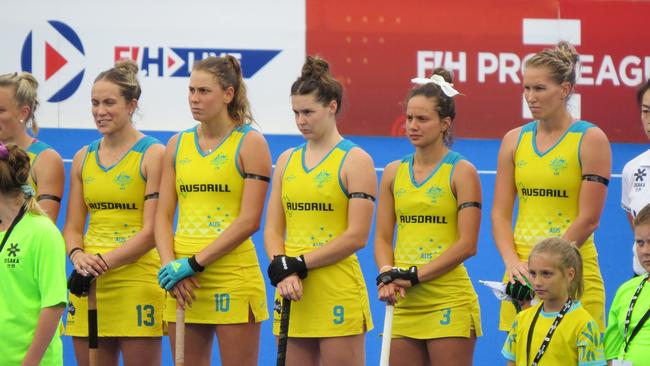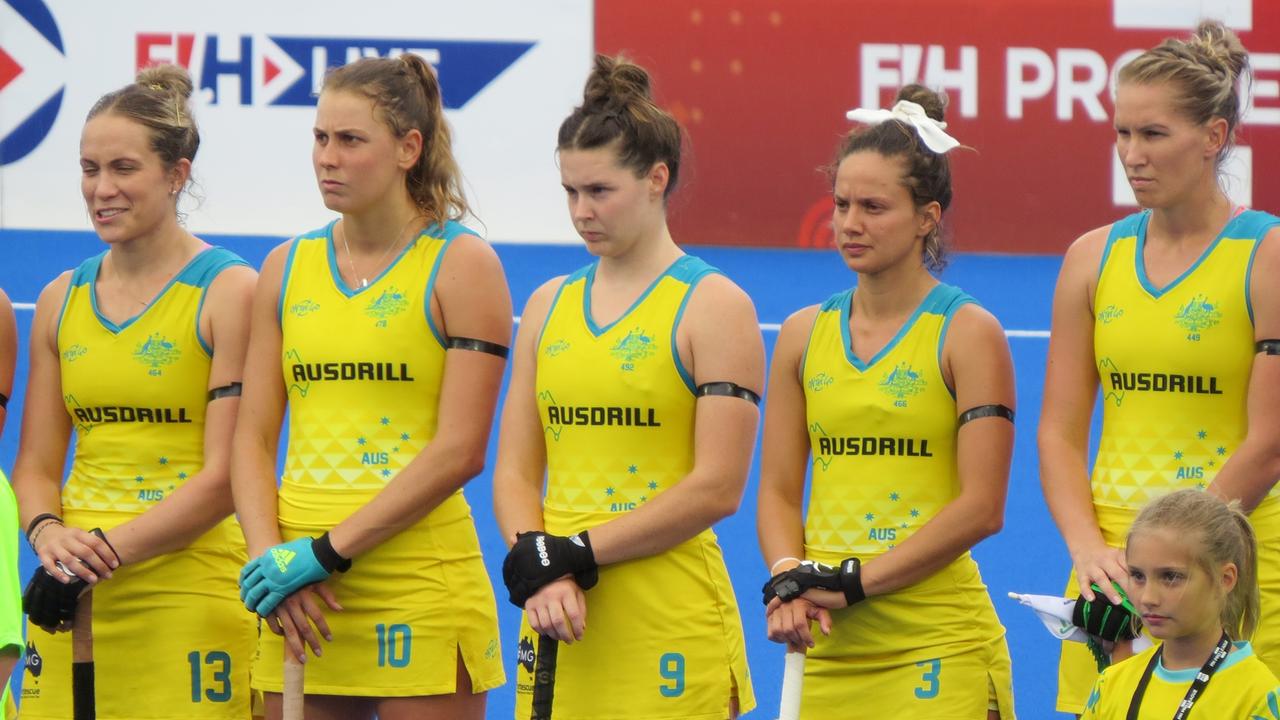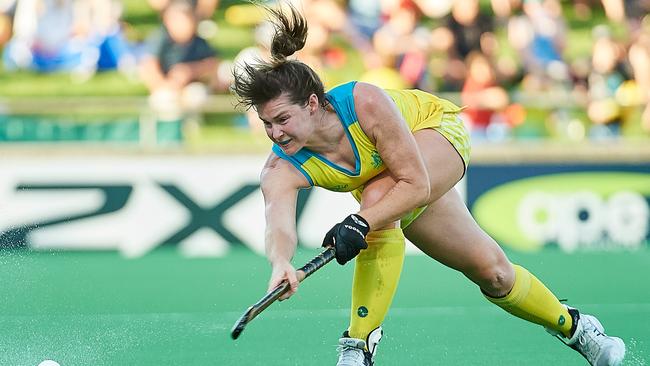Tokyo 2020 Olympics: Hockeyroos preview, Lily Brazel on hockey medal hopes
After a year of shameful revelations, hockey remains a sport in turmoil. The silencing of players and issues will be evident in how much talent is missing in Tokyo.

Olympics
Don't miss out on the headlines from Olympics. Followed categories will be added to My News.
Preparing for an Olympics in the context of coronavirus is an immense challenge all on its own, but for the Hockeyroos their preparation for Tokyo has presented more hurdles than most.
At the end of 2020, the now fourth-ranked Hockeyroos went through organisational and cultural turmoil when past athletes and staff spoke up about the dysfunctional management within the women’s program.
These voices, along with the leadership group of Jodie Kenny, Emily Chalker and Gerogina Morgan stepping down from their captaincy roles, led to an internal review of the Hockeyroos.
Since then, assistant coach Stephaine Andrews, head coach Paul Gaudoin and high performance director Toni Cumpston have stepped down from their posts. Chief executive Matt Favier will follow at the conclusion of the Tokyo Games.
The review was damning and there is much to be done to progress the women’s program toward a 21st century high-performance environment with intelligent, vulnerable leaders.
For the time being, the players that remain within the squad have had to adapt quickly to a new head coach, two-time Olympic Gold Medalist Katrina Powell, who will be the first female coach in 43 years, and assistant coach Jeremey Davy, a former Kookaburra.
With a new playing style under Powell and a new approach that has allowed the players to heal and reconcile with the upheaval, the Hockeyroos are perhaps in the best hands possible leading into Tokyo given the circumstances.
Yet, the Tokyo Olympic Team could have looked very different if the issues raised over the last four to six years about dysfunctional management were handled appropriately.
But the silencing of issues unfortunately saw talented and highly capped players leaving the game, ones who would have made up a remarkable Olympic team.

The likes of Jodie Kenny (226), Georgia Nanscawen (205), Emily Hurtz (108), Georgina Morgan (92), Kathryn Slattery (91), Gabi Nance (72), Lily Brazel (52), Jade Warrender (43), Madi Ratcliffe (39) and more stepped away in their prime due to the management and cultural issues.
The experience of those players, and the investment into them, has been wasted. And this waste requires serious rethinking beyond Tokyo.
Management has an immense amount of work to do to ensure experience, talent and diversity remain within the program and shift away from their linear framework which has led to stunted careers and inconsistent performances.
For the players that are left fronting the Games, there is tough competition ahead. The Hockeyroos will face Spain, China, Japan, New Zealand and Argentina in their pool where they will need to finish in the top four to progress to the quarterfinals.
Each of these opponents present challenges for the Hockeyroos. Spain last beat the side in the Bronze Medal match of the 2018 World Cup and the pair have not met since. China and Japan are well prepared for the summer heat and have sound game plans built on clinical basic skills.

New Zealand is the only team Australia has faced since the pandemic, with two wins and four draws of the last six games.
And Argentina presents a highly skilled, fast and dangerous attacking team that have caused damage to the Australia defence in the past.
Looking beyond their own pool, the Roos also face tough rivalry against the highly capped Dutch outfit which placed second in Rio, as well as previous gold medallist Great Britain and previous bronze medallist Germany. Ireland, which claimed silver at the 2018 World Cup is also a strong contender come quarterfinals.
The Hockeyroos have a fair chance of finding their way to the quarterfinals but it has been 20 years since they have progressed further.
With a young team of many Olympic debutants it will be challenging for the Roos but getting to contest with the world’s best always is.
This year’s Games present a big opportunity for the team to break a two-decade drought and prove that the disruptive change was necessary for the future of the team.





